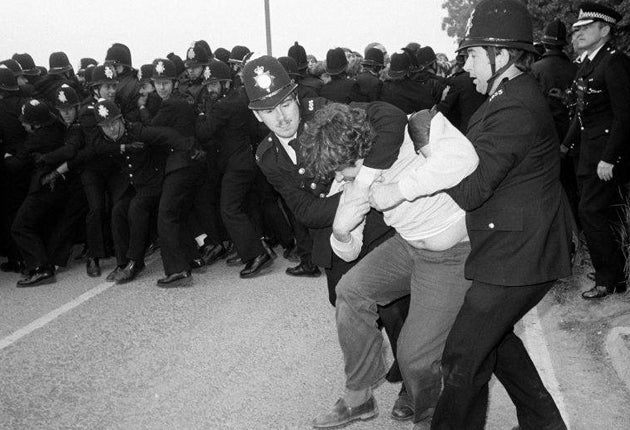Andy McSmith: This government picks its confrontations with care

Your support helps us to tell the story
From reproductive rights to climate change to Big Tech, The Independent is on the ground when the story is developing. Whether it's investigating the financials of Elon Musk's pro-Trump PAC or producing our latest documentary, 'The A Word', which shines a light on the American women fighting for reproductive rights, we know how important it is to parse out the facts from the messaging.
At such a critical moment in US history, we need reporters on the ground. Your donation allows us to keep sending journalists to speak to both sides of the story.
The Independent is trusted by Americans across the entire political spectrum. And unlike many other quality news outlets, we choose not to lock Americans out of our reporting and analysis with paywalls. We believe quality journalism should be available to everyone, paid for by those who can afford it.
Your support makes all the difference.The Government is dominated by men and women whose earliest political memories are of the 1980s, when Margaret Thatcher was locked in conflict with the unions. Her experience is their road map.
Mrs Thatcher was a clever tactician who judged when to pick a fight and when to retreat. Her method was to give in to the strong unions in the early rounds and pick off the weak ones, leaving the big ones until later.
In her first year in office, she approved pay rises of more than 20 per cent for the miners and council workers who had caused so much trouble in the past, but came down ruthlessly on the steelworkers, who had not taken part in an industrial dispute for years. They had produced more steel than the country needed, so a strike had no impact.
The state is in conflict with two unions. Staff on the London Underground have a track record for militancy and causing disruption. Bob Crow, the leader of one of their unions, is renowned as the main voice of the left in the TUC.
The firefighters have been involved in two major disputes in 50 years, one in 1997, the other in 2002. They have had letters telling them they will be sacked unless they accept new shift patterns – whereas the more militant Tube workers have been treated, comparatively speaking, with kid gloves.
Rail unions have the industrial muscle to create chaos. The Fire Brigades Union does not. There are private crews under contract to deal with routine incidents, and if there is a major fire, the strikers can be trusted to desert the picket line rather than let people die. The Government can hit them hard because they cannot hit back.
The unions were very strong during Mrs Thatcher's time in office, and the Thatcherites considered it an ideological imperative that they be curbed. They are much weaker now, and the present government would happily implement its programme without forcing a trade union dispute if it could. But with 490,000 public-sector jobs being sacrificed, there is a real prospect of head-on conflict with unions much larger than the FBU.
If council workers strike and people find that their bins are not being emptied and the streets are not being cleaned, or that bodies are being stored in mortuaries because graves are not being dug, it is difficult to predict whether public anger will be directed at the unions or at the Government.
This explains the urge to make an example of the firefighters, as a way of letting other public employees know that it does not pay to cause trouble. Picking on the weakest is not an especially noble tactic, but it has been shown to work.
Join our commenting forum
Join thought-provoking conversations, follow other Independent readers and see their replies
Comments